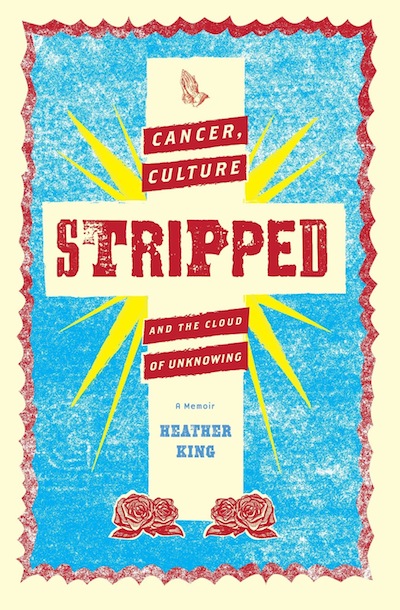One perk of being a book reviewer is that publishers regularly send emails, catalogs, and a steady stream of advanced review copies.
I try to review as many as I can, but I can’t get to them all. So each month I highlight a few new and upcoming books that I’m particularly excited about.
(The descriptions below are either from the publisher or from Amazon.)
Evangelizing Catholics: A Mission Manual for the New Evangelization
by Scott Hahn
Our Sunday Visitor, 192 pages, paperback
Released on May 21, 2014
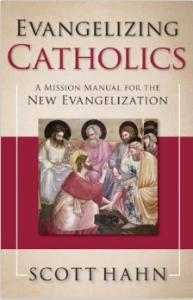 You can’t keep the faith unless you give it away.
You can’t keep the faith unless you give it away.
That’s a fact. To be a Christian is to be an evangelizer. When the Catholic Church calls us to a “New Evangelization,” that’s simply a reminder to us of what has always been true.
The good news is: you can do it – you can evangelize – and Scott Hahn shows you how.
In this this very practical “mission manual” Dr. Hahn equips you with:
- A guide to understanding what the New Evangelization is, and who it’s really for
- A roadmap that leads you to where it all happens (hint: it’s closer than you think)
- A simple, beautiful message to share – in words and actions
You don’t need esoteric knowledge. You don’t need to master a new set of skills. Evangelization, for Catholics, is simply friendship raised up to the highest level. Enter a deeper friendship with Christ, and you’ll want to share his companionship more and more with a wider circle of friends.
Stripped: Cancer, Culture, and the Cloud of Unknowing
by Heather King
CreateSpace, 218 pages, paperback
Released on January 16, 2014
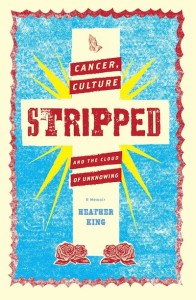 Heather King is a lawyer turned writer, a Catholic convert, and a sober alcoholic. In 2000, she was diagnosed with invasive breast cancer. The good news: a small tumor; the least advanced stage. Still, doctors recommended surgery, radiation, high-dose chemo, and five years of the aggressive hormone drug Tamoxifen.
Heather King is a lawyer turned writer, a Catholic convert, and a sober alcoholic. In 2000, she was diagnosed with invasive breast cancer. The good news: a small tumor; the least advanced stage. Still, doctors recommended surgery, radiation, high-dose chemo, and five years of the aggressive hormone drug Tamoxifen.
Terrified of dying, yet determined to steer her own course, she began researching. She found that chemo could kill, radiation could cause secondary cancers, Tamoxifen had severe side effects, and long-term studies on any of those treatments was virtually nil.
STRIPPED is a memoir about coming to the decision to have the tumor surgically removed—and to forego all further treatment. To love this world with all her heart, even as she knows she’ll be leaving it one day, is to dwell at the intersection of a cross where mystery, paradox, and a sense of humor meet.
Which is maybe why the very best thing to come out of that dark-night-of-the-soul year was the phone call she made to her friend Brad the night she got the diagnosis. “Brad!” she keened. “I have it! I have cancer!”
“That sucks,” he replied. “Could it have been that time I smoked in your car?”
Why Be Catholic?: Ten Answers to a Very Important Question
by Patrick Madrid
Image Books, 240 pages, hardcover
Released on June 3, 2014
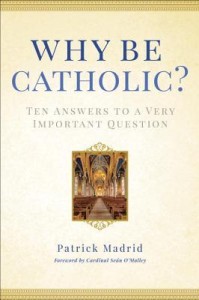 The popular blogger and publisher of Envoy magazine offers 10 key reasons why he loves being Catholic (and you should too). Drawing heavily on poignant anecdotes from his own experience as a life-long Catholic born in 1960s, Madrid offers readers a way of looking at the Church–its members, teachings, customs, and history–from perspectives many may have never considered.
The popular blogger and publisher of Envoy magazine offers 10 key reasons why he loves being Catholic (and you should too). Drawing heavily on poignant anecdotes from his own experience as a life-long Catholic born in 1960s, Madrid offers readers a way of looking at the Church–its members, teachings, customs, and history–from perspectives many may have never considered.
Growing up Catholic during a time of great social and theological upheaval and transition, a time in which countless Catholics abandoned their religion in search of something else, Patrick Madrid learned a great deal about why people leave Catholicism and why others stay. This experience helped him gain many insights into what it is about the Catholic Church that some people reject, as well as those things that others treasure. Drawing upon Madrid’s personal experiences, Why Be Catholic? offers a deeply personal, fact-based, rationale for why everyone should be Catholic or at least consider the Catholic Church in a new light.
Joseph Ratzinger-Collected Works: Theology of the Liturgy
by Joseph Ratzinger (Pope Benedict XVI)
Ignatius Press, 700 pages, hardcover
Released on May 5, 2014
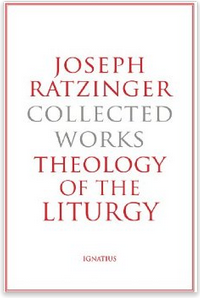 This major volume is a collection of the writings of Joseph Ratzinger (Pope Emeritus Benedict XVI) on the theology of the Liturgy of the Church, a subject of preeminence to him as a theologian, professor and spiritual writer. It brings together all his writings on the subject, short and long, giving his views on liturgical matters and questions over many years and from various perspectives.
This major volume is a collection of the writings of Joseph Ratzinger (Pope Emeritus Benedict XVI) on the theology of the Liturgy of the Church, a subject of preeminence to him as a theologian, professor and spiritual writer. It brings together all his writings on the subject, short and long, giving his views on liturgical matters and questions over many years and from various perspectives.
He chose to have his writings on the Liturgy for the first volume published of his collected works (though listed as vol. 11) because, as he says in the Introduction: “The liturgy of the Church has been for me since my childhood the central reality of my life, and it became the center of my theological efforts. I chose fundamental theology as my field because I wanted first and foremost to examine thoroughly the question: Why do we believe? But also included from the beginning in this question was the other question of the right response to God and, thus, the question of the liturgy.”
By starting with the theme of liturgy in this volume, Ratzinger wants to highlight God’s primacy, the absolute precedence of the theme of God. Beginning with a focus on the liturgy, he said, tells us that “God is first”. He quotes from the Rule of St. Benedict, “Nothing is to be preferred to the liturgy”, as a way of ordering priorities for the life of the Church and of every individual. He says that the fundamental question of the man who begins to understand himself correctly is: How must I encounter God? Thus learning the right way of worshipping is the gift par excellence that is given to us by the faith.
The essential purpose of his writings on the liturgy is to place the liturgy in its larger context, which he presents in three concentric circles. First, the intrinsic interrelationship of Old and New Testament; without the connection to the Old Testament heritage, the Christian liturgy is incomprehensible. The second circle is the relationship to the religions of the world. The third circle is the cosmic character of the liturgy, which is more than the coming together of a circle of people: the liturgy is celebrated in the expanse of the cosmos, encompassing creation and history at the same time.
Let’s Not Forget God: Freedom of Faith, Culture, and Politics
by Cardinal Angela Scola
Image Books, 128 pages, hardcover
Released on June 3, 2014
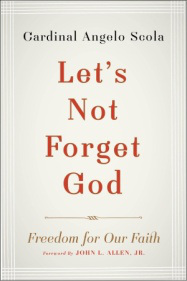 Born out of a speech celebrating the 1,700th anniversary of the Edict of Milan, in which emperors Constantine I and Licinius granted Christians legal rights, this book by Cardinal Angelo Scola gives attention to the crisis of religious freedom in the twenty-first century. Let’s Not Forget God outlines how Christianity has been at the center of creating a pluralistic society, from the Roman Empire in 313 to the American Revolution in 1776. This bold vision of freedom brings religion into the realm of public debate without allowing the state to banish or control it.
Born out of a speech celebrating the 1,700th anniversary of the Edict of Milan, in which emperors Constantine I and Licinius granted Christians legal rights, this book by Cardinal Angelo Scola gives attention to the crisis of religious freedom in the twenty-first century. Let’s Not Forget God outlines how Christianity has been at the center of creating a pluralistic society, from the Roman Empire in 313 to the American Revolution in 1776. This bold vision of freedom brings religion into the realm of public debate without allowing the state to banish or control it.
“The question of religious freedom,closely connected to that of freedom of conscience,” writes Cardinal Scola, “is revealing itself today to be crucial not only to the development of Western societies but also to the peaceful evolution of their relationships with Asia, Africa, and Latin America.” em>Let’s Not Forget God is both a portrait of the history of religious freedom and a testament to its potential for spreading peace.
What new and notable books are you looking forward to?

